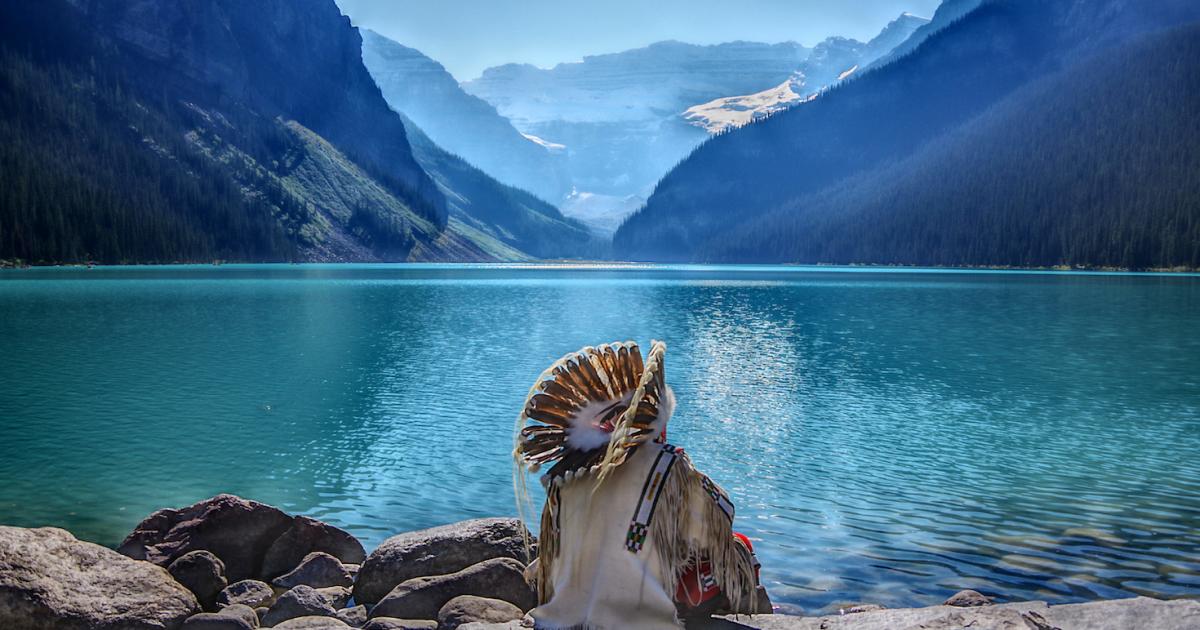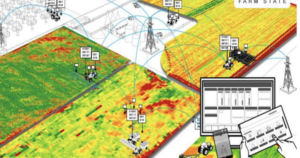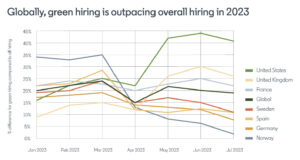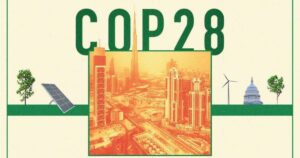
At the beginning of the fall semester, I asked my students to define sustainability. Many used terms and phrases related to addressing climate risks, adopting ESG reporting and framework practices, engaging with communities, using a circular economy model and so forth.
Then I asked them if they thought climate justice, Indigenous reconciliation, environmental racism and dismantling systemic barriers, and deeply entrenched effects of colonialism are interlinked with sustainability. Many were puzzled and unable to see the linkage.
Truth be told, I could not see that connection myself for a very long time. I've worked in the climate action field for six-plus years and have comprehensive experience developing corporate GHG reporting, sustainability roadmaps and ESG reports. Along with my corporate experience, I've been teaching courses on sustainability as part of the Toronto-based Seneca College's Sustainable Business Management program. Bridging the gap between industry skillsets and academic institutional knowledge is critical if we need to prepare the next generation for impactful and purpose-driven work. However, my view of sustainability was very binary in this land we now know as Canada.
In 2021, I was invited to design and teach a course on social impact and climate justice. The pandemic has shed light on many systemic issues in Canada, including racial injustices, police brutality, economic inequality, climate refugees, gender disparity and accessible healthcare. Corporations are grappling to understand how to address these issues without tokenism or performative measures. My vision to design this course started with a simple question: "How can corporations embrace the social side of ESG and accelerate climate justice?"
The climate justice movement acknowledges that climate change can have detrimental impacts on marginalized or underserved communities. These could include people of color, Indigenous Peoples, youth, people with disabilities and gender-diverse people. These communities bear little or no responsibility for climate change but are often affected the most.
Climate justice takes race, class, privilege, sexual orientation, gender and income into consideration while designing an equitable and community-led approach to protect the communities.
Climate justice takes race, class, privilege, sexual orientation, gender and income into consideration while designing an equitable and community-led approach to protect the communities. Eco-justice describes environmental racism as a "form of systemic racism, rather than individual racism. That means it is the result of institutional policies and practices, rather than individual beliefs and actions."
The more I read about how environmental racism disproportionately affected people of color and Indigenous communities in Canada, the more it became evident that our legacy of extraction is causing intergenerational trauma and loss of culture, oral traditions and lives. For instance, warmer temperatures affect the livelihoods of remote Indigenous communities in Northwest Territories as they often rely on winter roads for food, supplies and travel. Severe extreme events such as droughts, floods and forest fires could disrupt Indigenous land knowledge and cultural way of life.
An essential element of Seneca’s course is to deconstruct the critical role of how Indigenous communities shape ecological land knowledge and environmental policies in Canada. First, I had to sit in discomfort and reflect on my relationship with this country as a settler.
I was born and raised in Dubai. I moved to Canada over a decade ago to pursue my postsecondary education. In 2019, I became a Canadian citizen. When studying Canada's dark history, I first read about the legacy of the residential school system and the generational trauma it caused and that continues to affect Indigenous communities. For over 150 years, 150,000 children attended these federally funded and church-operated residential schools, and over 6,000 children never returned home. The schools were an attempt to force First Nations, Inuit and Métis children to assimilate into Canadian society. The schools also stripped the children of their cultures, languages and oral traditions; some were subjected to atrocities and abuses by the staff. In 2008, the Truth and Reconciliation Commission (TRC) was created to document the horrors of residential schools and accurately share survivors' stories. In 2015, The TRC proposed 94 calls to action to acknowledge the "cultural genocide" of Indigenous Peoples and begin the healing process of reconciliation.
The recent discoveries of unmarked graves in former residential schools in British Columbia, Saskatchewan, Manitoba and Northwest Territories sent a shockwave across Canada. As a settler-Canadian, I acknowledge that it took me this long to educate myself and become aware of the history of residential schools; this is not something to be proud of. I know I should do better and stand in solidarity in a meaningful way. After reading the 94 calls of action, recommendation No. 92 deeply resonated with my lived experiences as a sustainability professional. It states: "We call upon the corporate sector in Canada to adopt the United Nations Declaration on the Rights of Indigenous Peoples as a reconciliation framework and to apply its principles, norms and standards to corporate policy and core operational activities involving Indigenous peoples and their lands and resources."
I reached out to the broader faculty of Seneca College's Sustainable Business Management to discuss how we can include Indigenous worldviews in our course content. After several discussions with faculty and the program's advisory committee members, we recognized that our current courses need to integrate Indigenous pedagogy. Given that it's a management program, we wanted to teach students how Corporate Canada can rebuild relationships with Indigenous Peoples and be engaged in decision-making as equal partners. The faculty encouraged me to design a course that redefines sustainability from a race and justice perspective. This gap led to the development of a climate justice course first taught in the fall semester of 2021.
The research was the most eye-opening yet grim part of this course. For non-Indigenous educators, it's essential to first conduct research thoroughly before emotionally burdening Indigenous faculty members to fill the knowledge gaps in a class.
I read so many corporate pledges on net-zero targets presented in ESG reports, but many still need to address how they intentionally engage Indigenous Peoples and people of color while developing these climate action targets.
In her interview with Yale Environment 360, Beverly Wright, a thought leader on environmental justice and an advisor to the Biden White House, stated: "We have a lot of modeling going on telling us what we have to do to get to [net-zero carbon emissions by] 2050. But I haven’t seen one model that tells us what the whole country or the world would have to sacrifice to get there so that some people won’t be harmed."
Corporations are grappling to understand how to address these issues without tokenism or performative measures.
While the race to zero is necessary, we must ensure that this transition leaves no one behind. Together, as a class, we unpacked and collectively explored ways to integrate climate justice in corporations and how to advance reconciliation. We read case studies on brands such as Patagonia and Seventh Generation, both of which have invested in grassroots initiatives and amplified Indigenous voices through creative arts.
Seventh Generation's strong advocacy and investments in accelerating climate justice are commendable and inspiring for many corporations across North America. The company’s climate pledge explicitly states three strategic priorities, which include reducing impact through replacement or removal of GHG strategies, advocating for systemic policy solutions such as advancement in just climate solutions to reduce consumer use, and investing in frontline communities leading the way for the climate crisis and directing 100 percent of philanthropic giving towards Native American organizations that work towards a just and regenerative future. Seventh Generation is also highly vocal about divesting away from fossil fuels.
Our class wanted to use this course to encourage corporations to apply a climate justice and equity lens to their climate strategy. Our class also presented how resource-extractive industries and financial institutions can work towards an Indigenous-led approach to climate action and equally embrace energy transition. The overarching theme for my class was rooted in the principle that we need to divest away from systems that continuously perpetuate harm and invest in policy solutions that tackle both emissions and racial inequality.
Introducing climate justice as part of this program was the first step to bringing heightened awareness of the effects of climate change on underserved communities. This course is a work in progress, and there will be many more reiterations to ensure that we include Indigenous representations in the course content.
A call to action to all universities and colleges offering sustainability programs is to evaluate and audit their existing sustainability courses and embed climate justice in their curriculums. If we genuinely want to develop a just transition policy in Canada or elsewhere, we must equip all students with the knowledge and skillset to view sustainability from the lens of shared responsibility, accountability and commitment.
On the last day of my class, I asked my students the same question again: "How would you define sustainability?" One student raised her hand and stated, "Sustainability for me is building a better world by including diverse voices and leadership of those most impacted by a warming planet." I walked to my podium, smiled and thought, what a powerful way to end this class.
- SEO Powered Content & PR Distribution. Get Amplified Today.
- Platoblockchain. Web3 Metaverse Intelligence. Knowledge Amplified. Access Here.
- Source: https://www.greenbiz.com/article/how-designing-climate-justice-course-challenged-my-binary-thinking-sustainability
- 000
- 10
- 100
- 2019
- 2021
- a
- About
- abuses
- academic
- accelerate
- accelerating
- accessible
- accountability
- accurately
- acknowledge
- across
- Action
- actions
- activities
- address
- addressing
- adopt
- Adopting
- advance
- advancement
- advisor
- advisory
- advocacy
- advocating
- affect
- After
- All
- america
- American
- and
- Apply
- approach
- article
- Arts
- audit
- awareness
- barriers
- Bear
- become
- before
- Beginning
- behind
- Better
- between
- biden
- born
- brands
- bridging
- Bringing
- British
- British Columbia
- broader
- Building
- business
- call
- call to action
- Calls
- Canada
- Canadian
- carbon
- carbon emissions
- case
- Case Studies
- caused
- causing
- challenged
- change
- Children
- circular economy
- citizen
- class
- Climate
- climate action
- Climate change
- climate crisis
- collectively
- College
- Colleges
- color
- Columbia
- commendable
- commission
- commitment
- committee
- Communities
- community-led
- Company’s
- comprehensive
- Conduct
- connection
- consideration
- consumer
- content
- continues
- continuously
- Core
- Corporate
- Corporations
- could
- country
- course
- courses
- created
- Creative
- crisis
- critical
- cultural
- Culture
- Current
- Dark
- day
- decade
- Decision Making
- Design
- designing
- develop
- developing
- Development
- directing
- disabilities
- discuss
- discussions
- Disrupt
- diverse
- document
- Dubai
- Ecological
- Economic
- economy
- educate
- Education
- educators
- effects
- elsewhere
- embrace
- Emissions
- encourage
- encouraged
- energy
- engage
- engaged
- engaging
- ensure
- entrenched
- Environment
- environmental
- equally
- equity
- ESG
- essential
- Ether (ETH)
- evaluate
- events
- existing
- experience
- Experiences
- Explored
- expressed
- extraction
- extreme
- Fall
- federally
- field
- fill
- financial
- Financial institutions
- fires
- First
- food
- Force
- forest
- form
- Former
- fossil fuels
- Framework
- from
- fuels
- funded
- future
- gap
- Gender
- generation
- get
- GHG
- given
- Giving
- going
- grassroots
- grim
- hand
- healthcare
- heightened
- highly
- history
- Home
- House
- How
- How To
- However
- HTML
- HTTPS
- Impact
- impacted
- impactful
- Impacts
- in
- include
- Including
- Income
- individual
- industries
- industry
- Inequality
- initiatives
- inspiring
- instance
- Institutional
- institutions
- integrate
- intentionally
- Invest
- invested
- investing
- Investments
- issues
- IT
- Justice
- Know
- knowledge
- Land
- lands
- Languages
- Last
- leader
- Leadership
- leading
- Led
- Legacy
- Lens
- Life
- light
- little
- Lives
- Long
- long time
- loss
- Lot
- management
- many
- meaningful
- means
- measures
- Members
- model
- modeling
- more
- most
- Nations
- native
- necessarily
- necessary
- Need
- net-zero
- next
- node
- North
- north america
- offering
- ONE
- operational
- organizations
- Outlook
- pandemic
- part
- partners
- Patagonia
- People
- percent
- perspective
- perspectives
- philanthropic
- phrases
- planet
- plato
- Plato Data Intelligence
- PlatoData
- podium
- Police
- policies
- policy
- position
- powerful
- practices
- Prepare
- presented
- principle
- principles
- process
- professional
- Program
- Programs
- Progress
- proposed
- protect
- protection
- proud
- Publishes
- pursue
- question
- Race
- racism
- raised
- range
- reached
- Read
- Reading
- recent
- recognized
- Recommendation
- reconciliation
- reduce
- reducing
- reflect
- refugees
- regenerative
- related
- relationship
- Relationships
- remote
- removal
- Reporting
- Reports
- research
- Resources
- responsibility
- result
- rights
- risks
- roadmaps
- roads
- Role
- sacrifice
- same
- School
- Schools
- sector
- several
- severe
- Sexual
- Shape
- Share
- shared
- should
- Simple
- skillset
- So
- Social
- Social impact
- Society
- Solutions
- some
- something
- Staff
- stand
- standards
- started
- stated
- States
- Step
- Still
- Stories
- Strategic
- strategies
- Strategy
- Student
- Students
- studies
- Studying
- such
- Sustainability
- sustainable
- system
- systemic
- Systems
- takes
- targets
- Teaching
- tells
- terms
- The
- the world
- their
- theme
- Thinking
- thoroughly
- thought
- Through
- time
- to
- towards
- transition
- travel
- underserved
- understand
- United
- united nations
- Universities
- us
- use
- Ve
- View
- views
- vision
- VOICES
- walked
- wanted
- Warmer
- ways
- What
- which
- while
- white
- White House
- will
- Winter
- without
- Work
- worked
- world
- would
- Wright
- years
- youth
- zephyrnet
- zero





